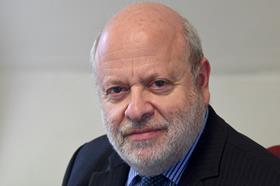The international legal conference season is upon us.

The International Bar Association’s annual conference has just finished in Mexico City. September also saw the annual conference of the International Association of Young Lawyers (AIJA) in Madrid. Next month sees more. The Union Internationale des Avocats (UIA) starts its annual jamboree in Paris at the end of October. And LAWASIA will be meeting in Kuala Lumpur mid-October. This is just a selection.
I mention them because the model of international legal organisations, often dependent financially on one or more large international in-person meetings, is unsustainable for much longer.
I did not go to Mexico City, but I went to the IBA annual conference in Paris last year, and my account of it ended with the following:
‘The IBA’s business model is predicated on in-person meetings between lawyers travelling long distances from around the world. This is not climate-friendly. Will the IBA do anything about it?’
I don’t mean to pick on the IBA, since it is not alone in this activity, but it is the organisation I know best. I don’t expect it to act instantly (or at all) on articles in the Gazette, but to my knowledge there are no planned changes to its business model.
The IBA has stuck out its neck on climate change, and exhorted us lawyers to act with urgency. It issued a ‘Climate Crisis Statement’ in May 2020, over four years ago, which urged lawyers to undertake a number of actions, including:
- adopting a climate conscious approach to problems encountered in daily legal practice;
- supporting a just transition towards carbon neutrality in a fair, sustainable and inclusive manner;
- living responsibly in the face of the climate crisis and, where possible, taking steps to reduce our environmental footprint through awareness of the impact of everyday actions;
- and, most importantly, supporting positive changes in the workplace, including adoption of more sustainable practices, such as more climate-friendly travel choices.
This statement addressed to lawyers conflicts directly with the actions of the organisation which aims to represent lawyers.
There is plenty of advice available now about how to organise sustainable large meetings. The first question is ‘Does your event require physical, face-to-face meeting?’ or ‘Do your participants need to be on site at all?’.
I understand that, from the perspective of the finances of whichever international legal organisation is being examined, the answer to the question may be ‘definitely, yes’. But that is not a criterion recognised in the framework of sustainability and climate change. The answer is certainly not yes: I did not go to Mexico City this year, and I survived.
There are reasons why lawyers travel to these conferences. A small number pursue political careers in the organisation’s hierarchy. More participate in committees devoted to their specialist subjects. And even more, doubtless the majority, attend for the networking opportunities in being able to meet lawyers from around the work and advance business opportunities. All of those are valid reasons.
But, if we believe that the planet is in grave trouble, and if there are alternate methods of meeting now through video and other platforms, changes must be made. Or are we to say, as rare floods devastate some countries and others burn under unusual heat, that the international legal organisations should be exempt from taking action to reduce their carbon footprint because their revenue streams will be affected?
Here’s a radical suggestion. What about turning the annual conferences of these organisations into biennial ones? At a stroke, the travel would be halved. I fully understand that the revenue stream would be halved as well, but these international legal organisations call regularly on others to take bold action in the public interest (‘Release this lawyer now!’, ‘Adhere to that international standard!), and so surely it is not too much to expect them to take the lead in sustainable action to protect the planet?
There is another solution. The conference sessions, or some of them (the keynote addresses, the main business panels and interviews) could be hybrid, with a different pricing structure for those participating online. Attendance at the in-person business sessions is often low anyway, sometimes barely outnumbering the panel of speakers, because the other lawyers are networking (or, dare I suggest, shopping or sightseeing). Enabling hybrid participation will increase the number of participants, and further reward the work of the session organisers. More and more conference venues have installed good quality online facilities, and locations could be chosen with this in mind.
There are doubtless further possibilities, if we are creative.
Whatever they choose to do, more sustainable activities will be forced on these organisations in due course. It is a global trend. Something will undoubtedly be lost when opportunities to meet internationally in person are axed or reduced, but more will be gained for our collective future.
Jonathan Goldsmith is Law Society Council member for EU & International, chair of the Law Society’s Policy & Regulatory Affairs Committee and a member of its board. All views expressed are personal and are not made in his capacity as a Law Society Council member, nor on behalf of the Law Society































3 Readers' comments